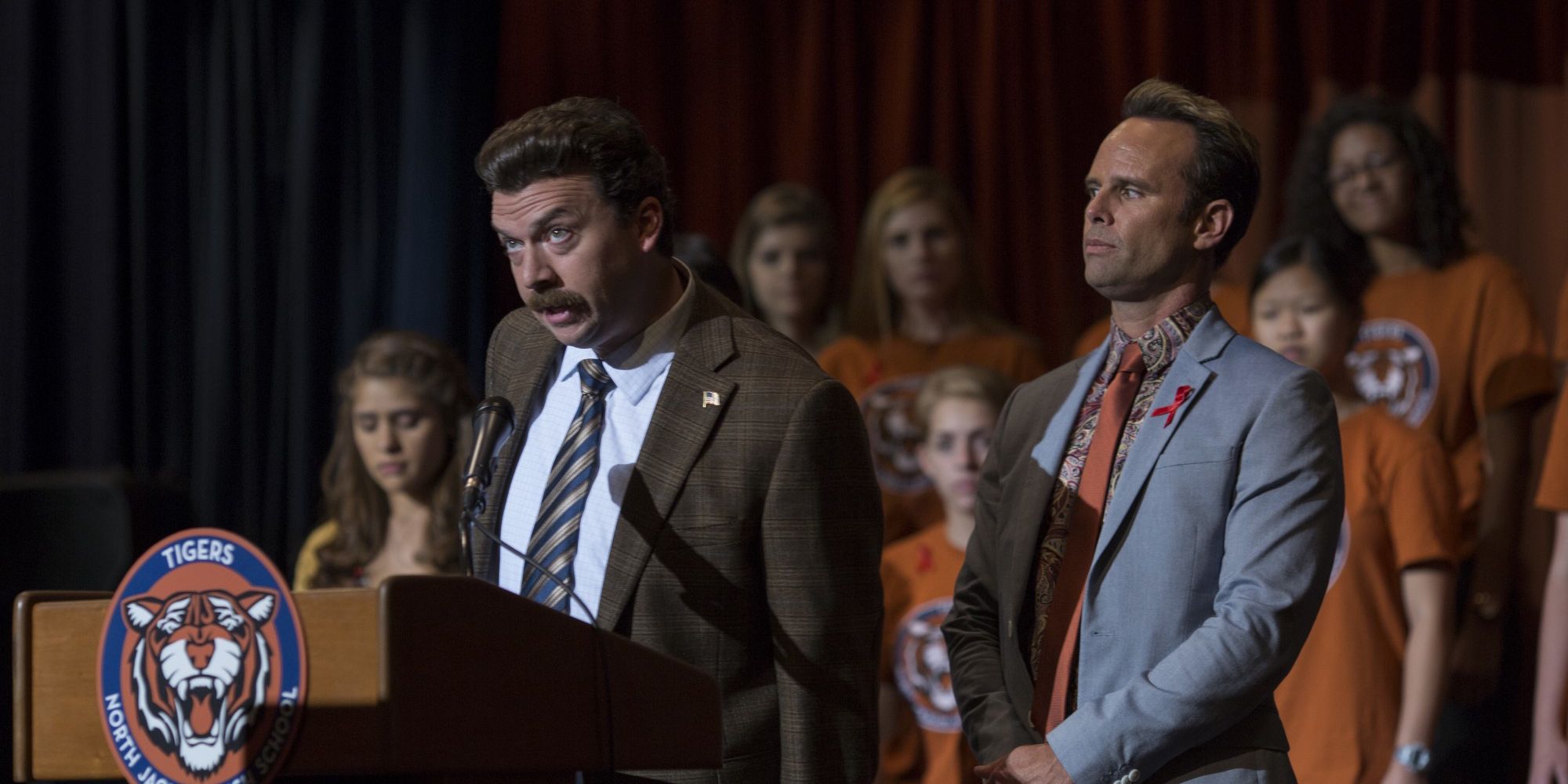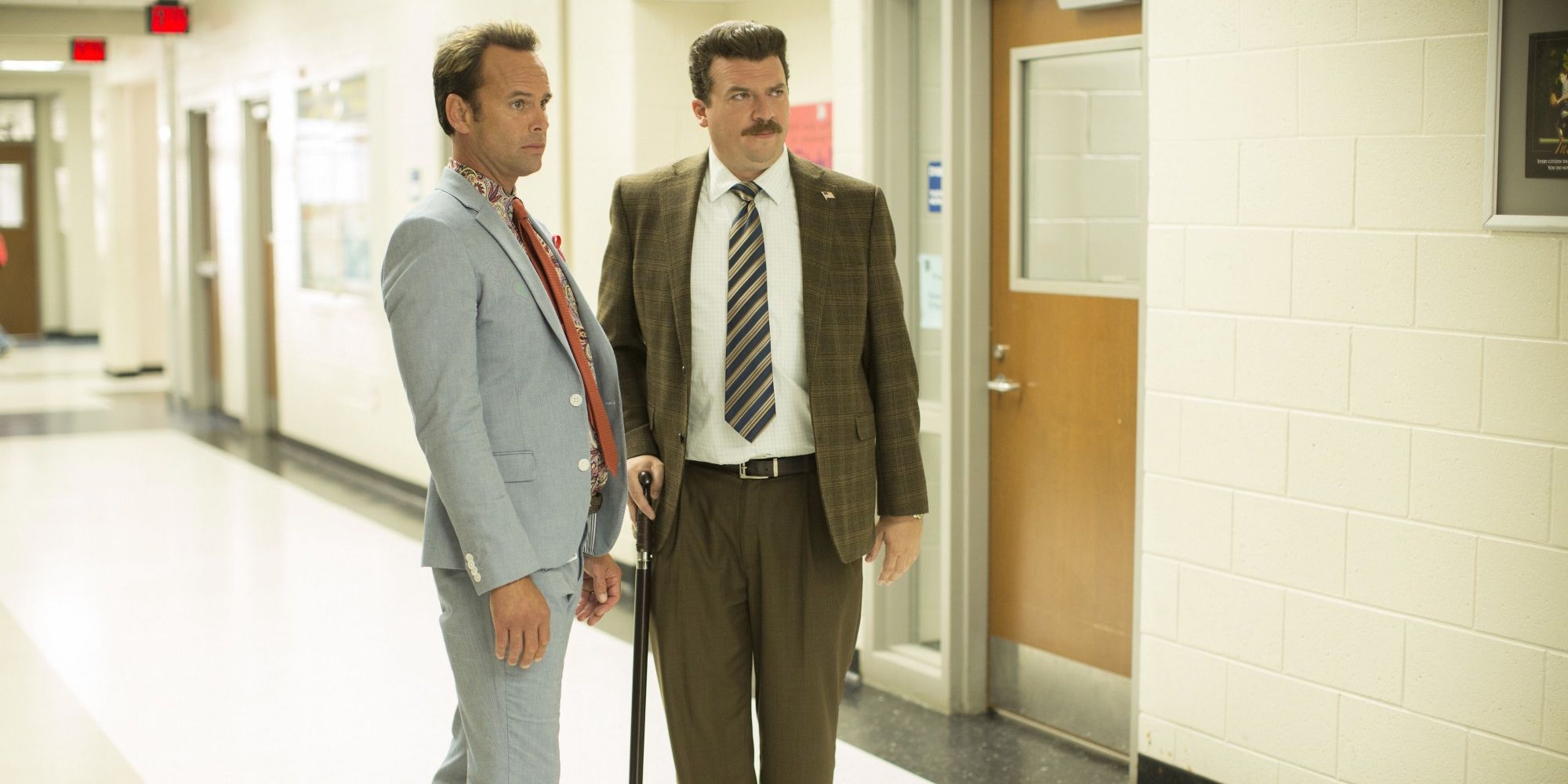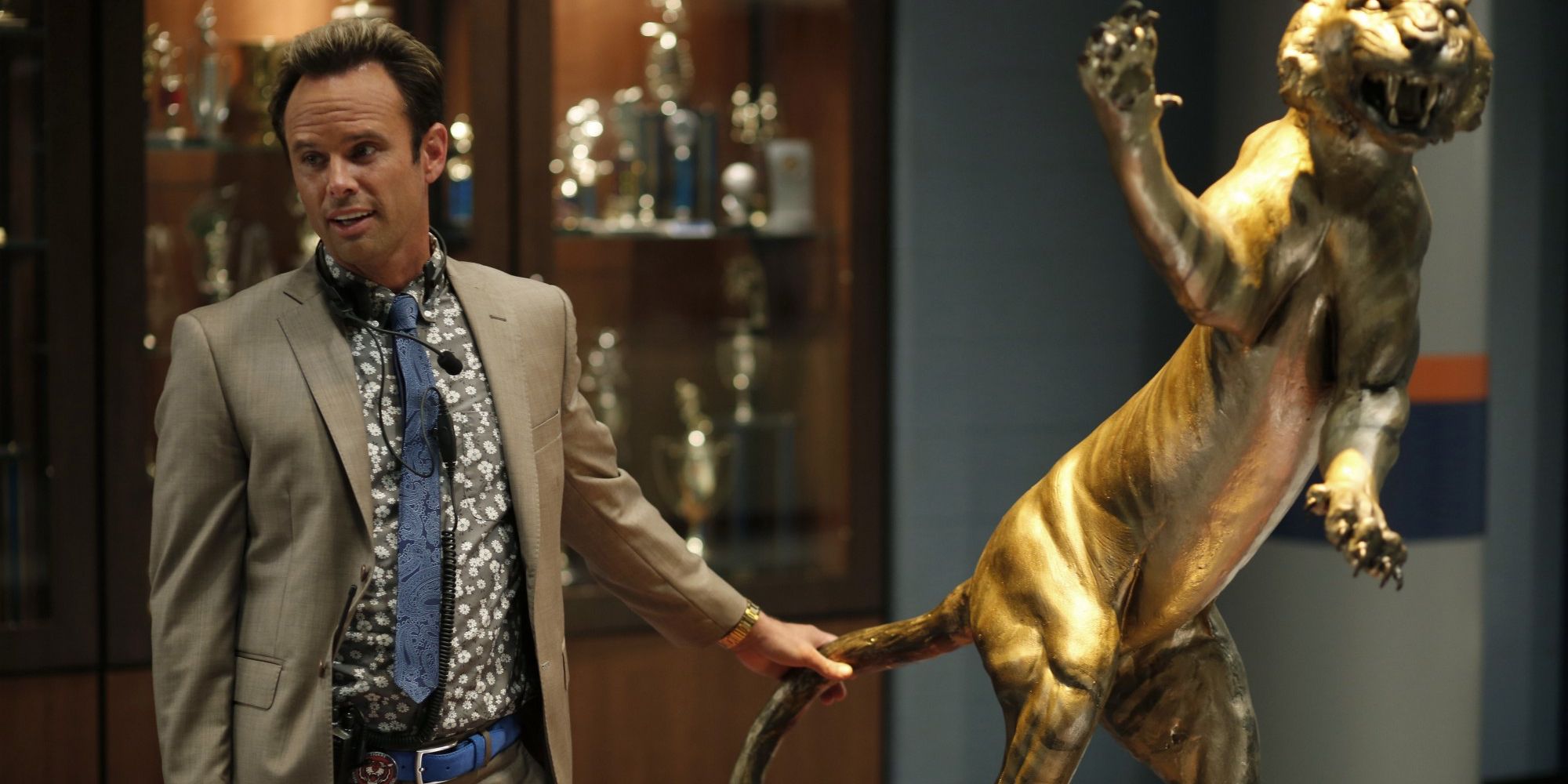HBO's Vice Principals returns for its second and final season, answering last season's cliffhanger with more comedy designed to make you feel awkward.
When Jody Hill and Danny McBride get together to make a movie or television series, as they did with The Foot Fist Way and HBO's often-hilarious Eastbound and Down, the results can be some very uncomfortable, cringe-worthy comedy, to say the least. The phrase "Comedy is subjective" seems born specifically from their projects, which often focus exclusively on middle-aged man-children (typically played by Danny McBride) who are shining examples of immaturity, selfishness, and, especially in the case of Vice Principals, white male privilege. The formula is so familiar at this point they've practically got it down to a science in this 18-episode long series.
Frequent McBride collaborator David Gordon Green (the two will be, almost inexplicably, rebooting the Halloween franchise next year) directs each episode, which allows the series to maintain its tone throughout each half-hour installment with little or no variance. For those who are on board with Hill and McBride's brand of comedy, that's certainly a plus, as Vice Principals is nothing if not unrelenting in its efforts to make Neal Gamby (McBride) and Walton Goggins' Lee Russell two of the very worst, but not entirely unsympathetic characters on television. If watching horrible people do horrible things with seemingly zero repercussions is not your thing, then Vice Principals probably isn't the right show for you. Then again, after season 1 ended with a shocking and very violent cliffhanger, in which Gamby was shot and left for dead in his school's parking lot, maybe the show isn't just about chronicling the free ride these characters get in spite their awfulness after all.
Gamby's shooting is another example of how the show runs headlong to the kind of territory you're not entirely certain it has any business running toward. Depicting a school shooting in a comedy is akin to watching two middle-aged white men systematically dismantle the career of a black woman in a position of power. The optics are nowhere near good. Depiction does not equal approval, though, but in also trying to make viewers laugh, Vice Principals doesn't make that distinction easy. In doing so, the series often exhibits the same heedlessness as its lead characters, giving the audience no vantage point from which they can comfortably sit back and watch (and judge) the antics of these two destructive numbskulls and simply be entertained. That's not to say Vice Principals isn't entertaining, because it is often very funny; McBride often delivers a howl-inducing performance while Goggins plays hilariously against type. But watching it you get the feeling so much of what's unfolding on screen is mostly there to entertain the people who made it, both because that's just their particular brand of humor – of which they're very good at – and because, on some level, Hill, McBride, and Green get a kick out of making difficult comedy.
It is fitting, then, that season 2 is not only about Gamby solving the mystery of who shot him and why (there is literally a binder full of suspects), but also in seeing him and Russell try to maintain their grip on the power they so undeservedly attained. Most of the second season premiere, 'Tiger Town,' is concerned with getting Gamby back on his feet. This is both literal and figurative. After the attack, he holed up with his ex-wife Gale (Busy Philipps) and her new husband Ray (Shea Wigham) while he convalesced. Unsurprisingly, Gamby's milking it for all its worth, relegating himself to a wheelchair and refusing to walk even though he's physically recovered from his injuries. Gamby's emotional health is another matter altogether, though. He is driven deeper into paranoia and obsession, while tracking down his would-be killer, leading to a series of uncomfortable situations that has him once again abusing his authority with the students, and sending Russell's new taskmaster Nash (Dale Dickey) after a kid Gamby had expelled through expectedly reprehensible means. But it also leads to some incredibly silly moments, like Gamby's tack board of suspects and clues, complete with model recreation of the crime scene and requisite red string connecting the various pieces.
Moments like that, wherein Vice Principals involves its characters in behavior seemingly learned from pop culture, while also mocking the pervasive sameness of that entertainment take the series to a fascinating place where it becomes even more cartoon-like that usual. The series pushes the limits of believability with small, seemingly inconsequential details, like an impressively organized map of a crime scene or Russell's rebranding of the school from the culturally insensitive mascot of a Native American "Warrior" to that of a tiger, complete with oddly misshapen bronze statue he can't keep his hands off of.
Like season 1, though, season 2 benefits from having a distinct plot. This keeps Vice Principals from feeling merely like a glorification of abhorrent behavior by attempting to blend humor with the idea that there are indeed ramifications for the actions of these two characters. It also hints at the possibility of Gamby and Russell changing along the way. That change comes in fits and starts, and often sees them wind up right back at the beginning because, let's face it, people don't really ever change. But that doesn't keep the series from walking right up on a potential turning point before turning around and heading in the opposite direction.
As with the awful behavior on display, you can only watch so much of Gamby and Russell approaching their version of enlightenment only to tuck tail and run. Hill, McBride, and Green are clearly aware how caustic these characters are, and how even the most tolerant viewer is likely to wind up screaming at their screen after too long. In that sense, it's a blessing that they're willing to go two-and-out with the series and bring it to a close after just 18 episodes. It's one thing to want to continually test your audience's ability to tolerate the behavior of your characters, but it's another thing altogether to fail to recognize that those limits exist. Vice Principals splits the difference by going all in on its cringe-worthy dark comedy, while also tacitly stating in the narrative itself that, at a certain point, enough is enough; there are limits to everything.
Next: Fall 2017 TV Premiere Dates – All The Shows You Won’t Want To Miss Out On
Vice Principals continues next Sunday with 'Slaughter' @10:00pm on HBO.



